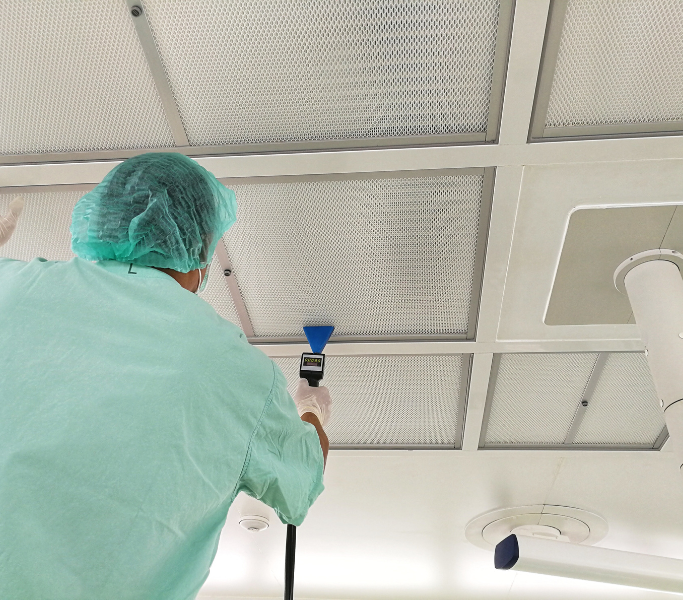
In environments where air quality is critical, ensuring that high-efficiency particulate air (HEPA) filters are functioning optimally is essential for the safety and well-being of workers, occupants, and equipment. DOP (Dispersed Oil Particulate) testing is a specialized service designed to evaluate the performance and efficiency of HEPA filters, ensuring they effectively remove airborne contaminants and maintain clean air standards in sensitive environments. At T&T Occupational Health & Safety, our DOP testing service employs meticulous procedures to provide reliable, accurate results, guaranteeing optimal filter performance and compliance with industry standards.
DOP testing is a process used to evaluate the efficiency of HEPA filters by introducing an aerosol of dispersed polyalphaolefin oil particulates into the air stream. The filter then captures these fine particles, and the test measures the filter’s ability to remove the particulates from the air. The DOP test provides a reliable indicator of how well the HEPA filter is functioning and whether it is capable of effectively trapping airborne contaminants.
HEPA filters are used in critical environments, including hospitals, laboratories, clean rooms, and industrial settings, where air quality is paramount. Over time, even the best filters can become compromised due to damage, clogging, or general wear and tear, making regular DOP testing essential for ensuring their effectiveness.

HEPA filters are designed to remove at least 99.97% of airborne particles that are 0.3 microns or larger. This level of filtration is crucial in environments where air purity is directly tied to the health and safety of individuals or the integrity of sensitive equipment. DOP testing helps confirm that filters are meeting this standard, providing several key benefits:
At T&T Occupational Health & Safety, we use industry-standard procedures and equipment to conduct DOP testing. The process involves the following steps:
Regular DOP testing is essential for any facility that relies on HEPA filters to maintain air quality. Some common situations where DOP testing is required include:
HEPA filters play a crucial role in protecting people and processes from airborne contaminants, particularly in environments where hazardous substances, infectious agents, or fine particulates are present. The health risks associated with poor air filtration include:
Ensuring that HEPA filters are properly tested and maintained can reduce these risks and ensure your environment remains safe and compliant.
At T&T Occupational Health & Safety, we are committed to providing comprehensive and reliable DOP testing services. Our certified technicians use advanced equipment and adhere to strict testing protocols to ensure accurate results. Whether managing a hospital, laboratory, or industrial facility, you can trust us to evaluate your HEPA filters and help you maintain a safe, clean, and compliant environment.
We offer detailed reporting, expert recommendations, and ongoing support to keep your filtration systems functioning at their best. Contact us today to schedule your DOP testing and ensure your facility maintains the highest air quality standards.